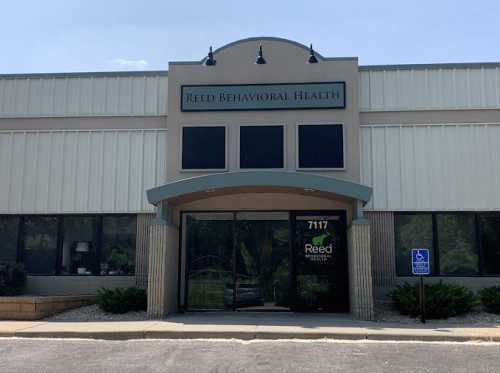






Reed Behavioral Health - Edina
Treatment Focus
This center treats substance use disorders and mental health conditions. You'll receive individualized care catered to your unique situation and diagnosis, learn practical skills for recovery, and make new connections in a restorative environment.
Primary Level of Care
Outpatient treatment offers flexible therapeutic and medical care without the need to stay overnight in a hospital or inpatient facility. Some centers offer intensive outpatient program (IOP), which falls between inpatient care and traditional outpatient service.
This provider hasn't verified their profile's information. Are you the owner of this center? Claim your listing to better manage your presence on Recovery.com.
Treatment Focus
This center treats substance use disorders and mental health conditions. You'll receive individualized care catered to your unique situation and diagnosis, learn practical skills for recovery, and make new connections in a restorative environment.
Primary Level of Care
Outpatient treatment offers flexible therapeutic and medical care without the need to stay overnight in a hospital or inpatient facility. Some centers offer intensive outpatient program (IOP), which falls between inpatient care and traditional outpatient service.
Provider's Policy
Services at Reed Behavioral Health will be covered by major insurance plans.
Reed Behavioral Health - Edina
Reed Behavioral Health - Edina
About Reed Behavioral Health - Edina
*CLOSED* Reed Behavioral Health is an outpatient clinic located in Edina that offers a wide variety of therapeutic programs for clients of all ages. Their comprehensive treatment specializes in addiction with co-occurring mental health or eating disorders, but their services include ongoing individual therapy for several different mental health disorders, including children and adolescents, adults and children with ADHD, couples therapy, family therapy, therapy for seniors, chronic pain or illness, postpartum depression and more.
Intensive Outpatient Programs
Reed Behavioral Health offers individually tailored care through day treatment and intensive outpatient programs blending individual and group therapy and activities, offering flexible scheduling with trauma-informed care. Their intensive day treatment program is designed for individuals with addiction and co-occurring disorders and meets for several hours per day, 5 days per week. Their evening sessions offer an intensive outpatient program (IOP) for 3 hour sessions 3 nights per week. IOP is ideal for individuals who need a less-intensive and structured treatment program.
Outpatient programming may include covering topics such as individualized counseling and treatment planning, chemical dependency process groups, relapse prevention education, emotional wellness, stress management, health education, relationship or family counseling, independent living skills, meditation and mindfulness, mental health therapy, and group counseling and education. A specialized program is available for addiction with secondary eating disorders, and provides psychotherapy combined with individualized nutritional counseling. Reed Behavioral Health also offers psychiatric services, medication management, and medication-assisted treatment (MAT) to help combat cravings and ease withdrawal symptoms.
Aftercare services include continuing care in person or virtually, discharge and relapse prevention planning, community support meetings, peer mentoring and case management services.
Center Overview
Treatment Focus
This center treats substance use disorders and mental health conditions. You'll receive individualized care catered to your unique situation and diagnosis, learn practical skills for recovery, and make new connections in a restorative environment.
Insurance Accepted
Pricing and Program Length
Estimated Center Costs
The cost listed here ($50-200/hour), is an estimate of program cost. Center price can vary based on program and length of stay. Contact the center for more information. Recovery.com strives for price transparency so you can make an informed decision.
Levels of Care










